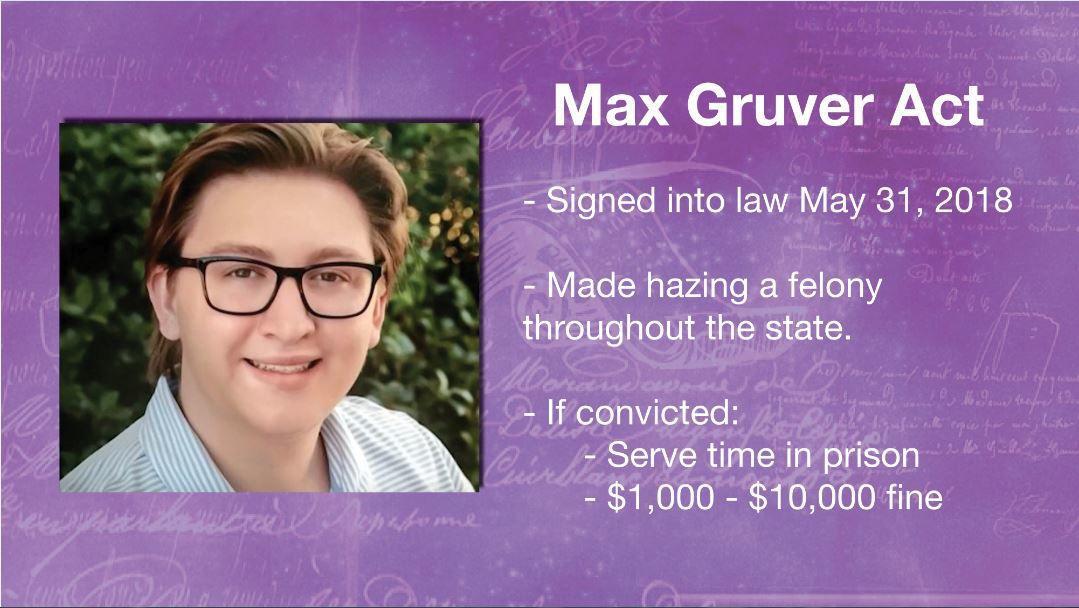The life and legacy of Max Gruver left the state of Louisiana with a decision to make.
Would Louisiana change the crime of hazing from a misdemeanor to a felony?
Not long after Max Gruver passed, his parents came forward with a bill called the Max Gruver Act, which would do exactly that.
“So, it was a gal from Louisiana, Kelly, came and introduced us to…” Stephen Gruver started.
“Representative Landry,” Rae Ann Gruver continued. “She just started the ball rolling about changing the hazing law because the hazing law in Louisiana, everyone knows now, was very minimal.”
The bill that passed and was signed into law by Gov. John Bel Edwards on May 31, 2018, made hazing a felony throughout the state. If convicted, the person would serve time in prison and pay fines ranging from $1,000 to $10,000.
Now, Stephen looks to his own state of Georgia to make the same changes there.
“We’re actually working with the Senators here in the state of Georgia to try to strengthen the laws in Georgia as well,” Stephen said.
The legal action continues as Max’s parents carry out their lawsuit against LSU and Phi Delta Theta which was filed on August 16, 2018.
“Had they nipped these things in the bud a long time ago and really done the things that they’re trying to do today 5, 10, 15 years ago, then that would’ve created a change,” Stephen said.
Following Max’s passing on September 14, 2017, Phi Delta Theta revoked its LSU Chapter 4 days later.
On October 11, ten Phi Delta Theta members were arrested and released on bond. This was also the day the LSUPD decided Max was “targeted.”
Greek life faced a big change on October 19 when all alcohol was banned from on-campus events.
It was not until February 28, 2018, that LSU President F. King Alexander brought forth his new Action Plan.
The indictment for Matthew Naquin, Sean-Paul Gott, Ryan Isto and Patrick Forde took place on March 15, and on March 21, the fraternity was banned from campus until the year 2033.
The fraternity might be off of LSU’s campus, but the battle has not been won in the eyes of Max’s parents.
The couple now travels from state to state motivated by Max’s legacy speaking to universities and high schools about the dangers of hazing and how to avoid it.
“Just because it happened to you, doesn’t mean you should do it to somebody else.You should be who stops it. Because I have yet to meet someone that has said “Oh I liked hazing,” Rae Ann said.
“We have actually met a lot of people who have talked about hazing, and that they got hazed. They always remember the person who hazed them,” Rae Ann continued. “They can’t remember 90 percent of who they went to college with and who was in their fraternity in college, but you know who they do remember? The person that hazed them, and they still resent them 20 years later.”
Max may be gone, but the impact of his life will forever remain on the campus of LSU.








